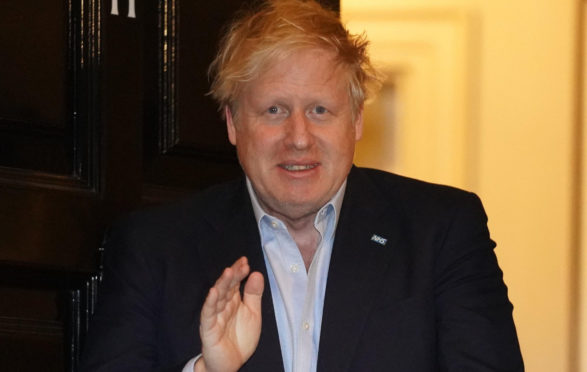
Ever since politicians labelled Covid-19 “the invisible enemy” I have felt uncomfortable at the idea that we are engaged in a war with a foe we can somehow vanquish with brute strength rather than science.
While it is true that, in these surreal times, it can feel almost comforting to pour our nervous energies into a narrative that is all about battening down the hatches and doing our bit for the national effort, that kind of jingoistic hyperbole also leads to panic-buying and an escalation of fear.
The wartime metaphors around battling Covid-19 are many and not helping anyone, not least Boris Johnson who, following his admission to an intensive care unit last week, has been painted as both a war hero and a martyr to the cause.
One paper even chastised the nation, saying the prime minister had continued to work while ill and we should now all pray at home for him. As if guilt-tripping a country, already in enforced lockdown, will help improve the national psyche.
His deputy, Foreign Secretary Dominic Raab, described Mr Johnson as a “fighter” and former prime minister David Cameron described him as “very tough, very resilient, very fit” and said that from facing him on the tennis court, he was sure the prime minister would come through this. As if having a strong forehand offers some magical resilience against a virus that no one yet understands.
The language of sport often echoes the same wartime rhetoric and, on Friday, the PM’s dad Stanley suggesting his son “almost took one for the team” had the same melodramatic sense of sacrifice bravely borne. It is, frankly, for the birds.
Machismo is no antidote to a virus that doesn’t respect social stereotyping and while we all wish Mr Johnson well as he continues to make progress towards recovery, he was wrong a month ago to have boasted about shaking the hands of infected patients and then going on to continue with business as usual.
Even as things changed and advice was going out from the NHS that we should all keep two metres apart, the PM was at his podium, unmasked, and briefing the country within what looked like transmission range of his medical and scientific advisers. He was not a hero for going to work when he was ill, he was risking his health at a crucial time for our country.
This is not war, it is an international public health emergency and those who have already died did not do so because they didn’t fight hard enough. They died because we couldn’t cure them and no amount of stiff upper lips or pulling up our socks, will bring them back. We owe it to them to stop talking about war and make peace with our fallibility.
The broadcaster, Danny Baker, once said of his cancer: “I didn’t fight it, I just lay there, and my body was the battlefield where others did the fighting for me.” And he was right.
Most of us are not at war. It is the NHS staff and the care workers who, to fall into the language of politicians, are being sent into the trenches without the armoury – the PPE – they need to fight this illness and that is where our leaders must focus their words and actions.

Enjoy the convenience of having The Sunday Post delivered as a digital ePaper straight to your smartphone, tablet or computer.
Subscribe for only £5.49 a month and enjoy all the benefits of the printed paper as a digital replica.
Subscribe